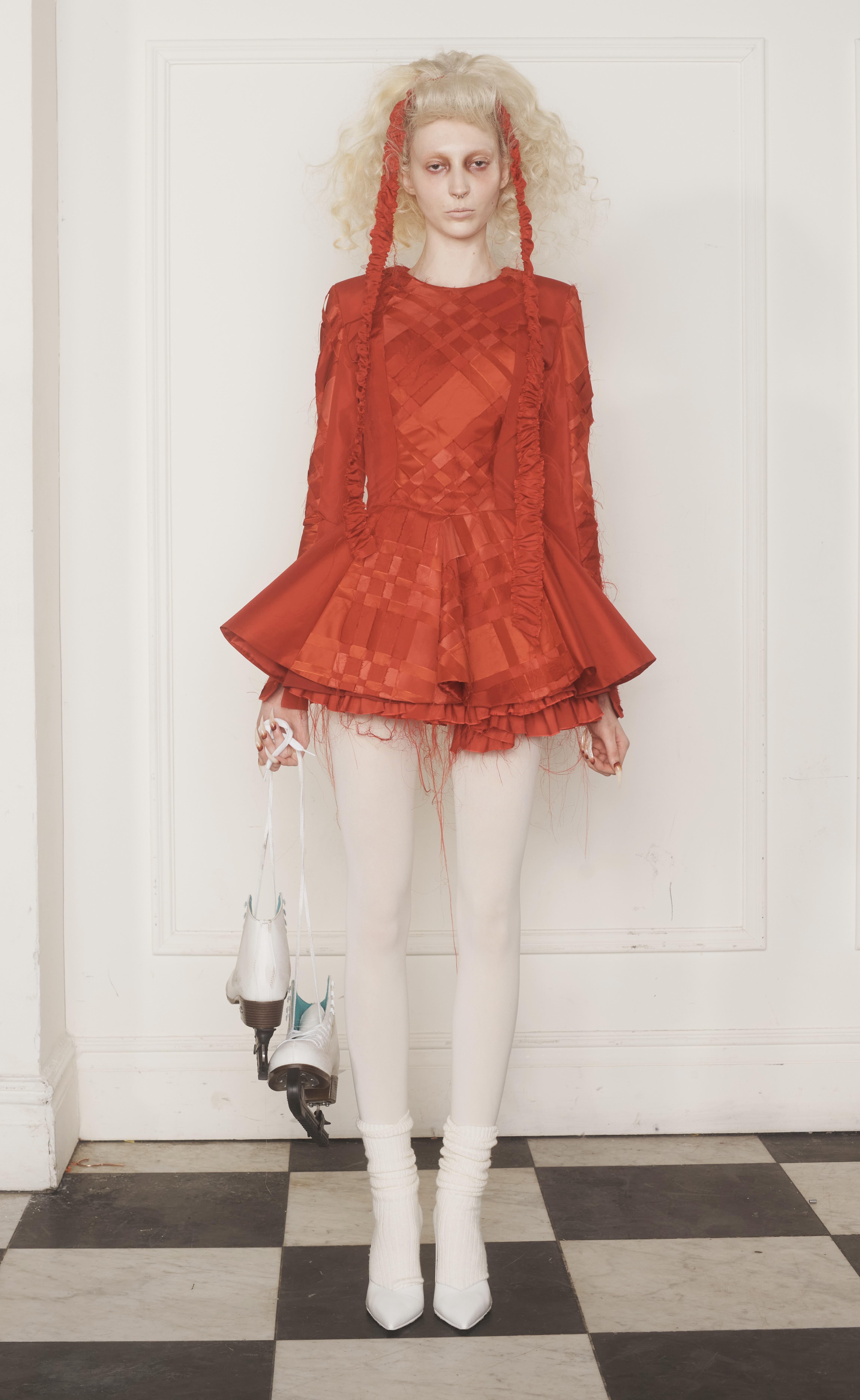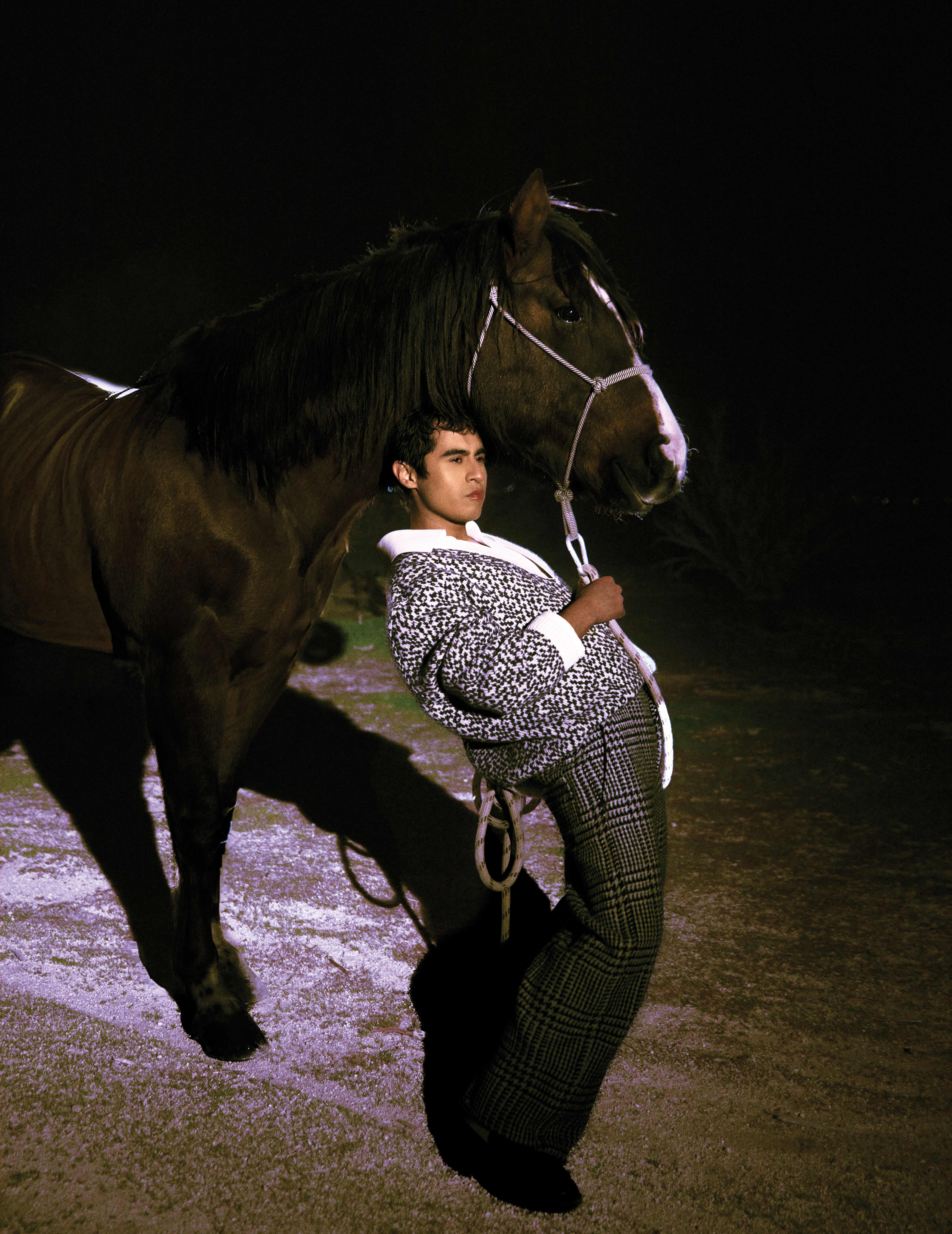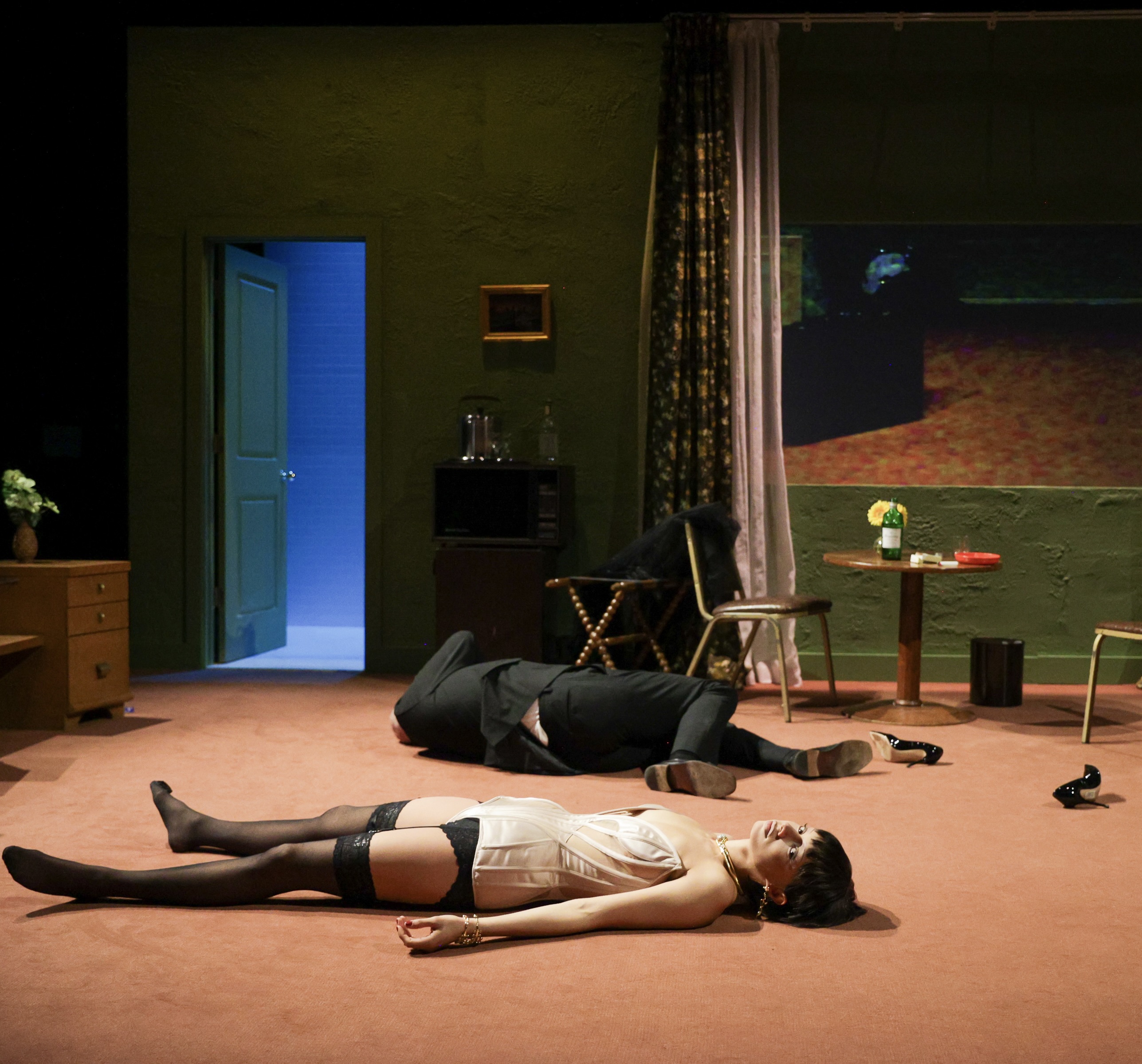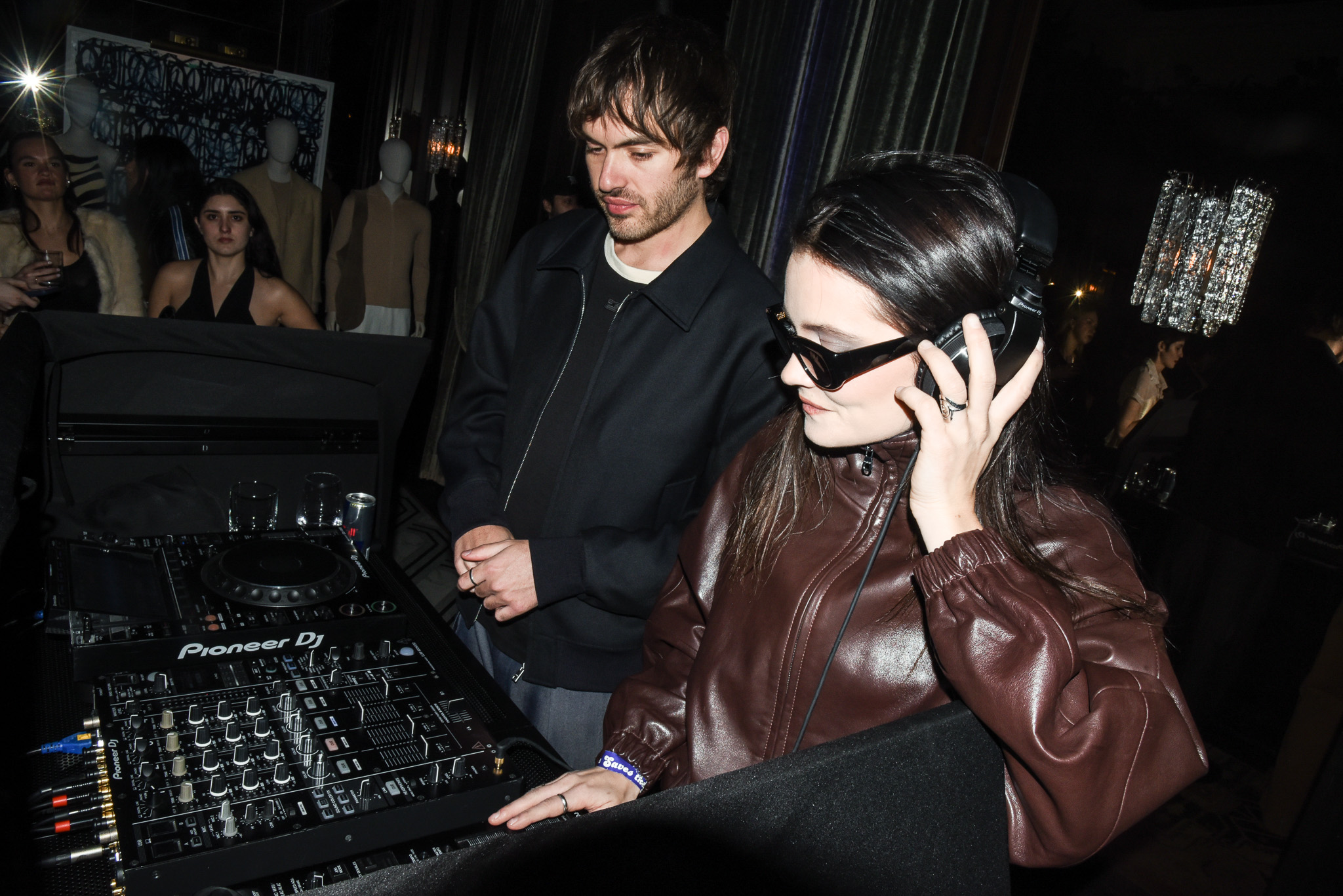

[](https://flaunt-mag.squarespace.com/config/pages/587fe9d4d2b857e5d49ca782#)[](https://flaunt-mag.squarespace.com/config/pages/587fe9d4d2b857e5d49ca782#)
Rula Jebreal
This Journalist-Writer Will Steer Us Back to Sanity
For those disillusioned with the current state of news media, television might seem like the last place to find respite. And yet, the frothy torrent of infotainment that keep us abreast of such illuminaries like Snooki and Honey Boo Boo Child does, on occasion, offer up a rare voice of reason, someone who tells us we’re losing our grip. Most recently, this someone was Rula Jebreal.
When the Italo-Palestinian MSNBC news correspondent appeared as a guest on HBO’s _Real Time with Bill Maher_ last January, she wasted little time chastising the acerbic host for being “vulgar” (he dropped an f-bomb) before interrupting a tepid discussion of the Manti Te’o girlfriend controversy to question why the celebrity panel had stooped to such trivialities. Strong-arming the conversation was very much in character for Jebreal, and seemed to have its intended effect. “She has a fucking point,” said a dejected-looking Martin Short.
It’s not that Jebreal has a short fuse for topical pop of the moment, necessarily; it’s that she’s legitimately concerned about an American culture that seems ill-prepared to differentiate reality TV from reality. “Americans are the most entertained and the least informed,” she said at the end of the _Maher_ show.
On a recent Sunday afternoon in a green room at NBC’s studio in New York, she readily stood by her statement. “They are,” she says. “Why are the Kardashians more popular today than Nancy Pelosi or Sheryl Sandberg? What kind of culture are we building? I don’t understand why so much airtime, money, and fame are directed at people who have no contribution to society.”
As someone whose job it is suss out veracities, to pluck kernels of truth from stories packaged and sensationalized for mass media and use them to produce an accurate version of events, there has to be a certain rub in seeing Americans glomming onto stories that are more fluff than fact.
Jebreal got her journalistic start in Italy, where she won awards for her coverage of Iraq and criticism of Berlusconi’s tight grip over the media. Her first novel, _Miral_, was based closely on her own upbringing in a Jerusalem orphanage, and was turned into a film in 2007, directed by former beau Julian Schnabel. She’s also written another novel, _The Bride of Aswan_, along with a non-fiction book on the history of immigration in Europe, and is currently at work on her next novel.
To put it mildly—or honestly, as she might prefer—she’s well-versed in her field. “I’ve been reading about \[global\] issues since I was a child. When everyone else was dating boys, I was reading about foreign policy, international laws, the role of the UN in their global managing of conflict. When you speak multiple languages”—Jebreal is fluent in Arabic, Hebrew, Italian, and English—“it makes your brain function so fast, and you jump from one role to the next without any difficulty.”
Translation, like any filter, is a kind of fiction, and the act of translating real life into print is no different. While some have embraced this gap to their benefit—in a defense of _In Cold Blood_, Truman Capote wrote: “Reflected reality is the essence of reality, the truer truth … all art is composed of selected detail, either imaginary or… a distillation of reality”—others, like Jebreal, defend a more classical distinction between fact and fiction, even in an age when many have declared “journalism is dead.”
“If you’re trying to shut me down \[with false information\], I will react to it,” she says. “It’s disrespectful, and what are they scared of? That my points make more sense? If you’re scared of the truth then something is wrong with your TV station. It’s dangerous when financial powers can manipulate public opinion, when there is so much power in the hands of a few.”
Jebreal lives in downtown Manhattan with her sixteen-year-old daughter, Miral, and despite being familiar with the travails of public life (her romance with Schnabel was well “documented” by the tabloids), says she doesn’t feel any of the typical pressures of being a public persona in a big city. “When you have a purposeful life, you don’t feel the pressure somehow. In the beginning, I was intimidated by how everything moved so fast. I felt like there was a lot of agenda in every person. It’s fine; it’s part of the culture, obviously. But you can find your own groups and friends who connect with you because of who you are.”
A desire for authenticity runs throughout her personal life—she favors documentaries over narrative films (recent favorites: _Five Cameras; Inside Job; Sugarman_), listens to the classics (Beethoven, Verdi, Bob Dylan, The Who), and prefers solitary activities like running and spinning. She wakes up with her daughter every morning, and they have breakfast together over the morning news. “Her whole life she said ‘I don’t want to do what mom does,’ that we don’t even look alike,” she says, laughing. “But she’s now thinking about majoring in international law or foreign policy, so maybe a small part of me rubbed off on her.”
When asked if she’s a strict parent, Jebreal nods. “She says yes. She emails my sister and says she has no privacy, that I’m too controlling. She wants to be her own person, independent from me.” Still, Jebreal admits, times have changed. “I try to protect her as much as I can, but it’s not about giving rules any more, it’s about negotiating them.”
 
[](https://flaunt-mag.squarespace.com/config/pages/587fe9d4d2b857e5d49ca782#)[](https://flaunt-mag.squarespace.com/config/pages/587fe9d4d2b857e5d49ca782#)
Rula Jebreal
This Journalist-Writer Will Steer Us Back to Sanity
For those disillusioned with the current state of news media, television might seem like the last place to find respite. And yet, the frothy torrent of infotainment that keep us abreast of such illuminaries like Snooki and Honey Boo Boo Child does, on occasion, offer up a rare voice of reason, someone who tells us we’re losing our grip. Most recently, this someone was Rula Jebreal.
When the Italo-Palestinian MSNBC news correspondent appeared as a guest on HBO’s _Real Time with Bill Maher_ last January, she wasted little time chastising the acerbic host for being “vulgar” (he dropped an f-bomb) before interrupting a tepid discussion of the Manti Te’o girlfriend controversy to question why the celebrity panel had stooped to such trivialities. Strong-arming the conversation was very much in character for Jebreal, and seemed to have its intended effect. “She has a fucking point,” said a dejected-looking Martin Short.
It’s not that Jebreal has a short fuse for topical pop of the moment, necessarily; it’s that she’s legitimately concerned about an American culture that seems ill-prepared to differentiate reality TV from reality. “Americans are the most entertained and the least informed,” she said at the end of the _Maher_ show.
On a recent Sunday afternoon in a green room at NBC’s studio in New York, she readily stood by her statement. “They are,” she says. “Why are the Kardashians more popular today than Nancy Pelosi or Sheryl Sandberg? What kind of culture are we building? I don’t understand why so much airtime, money, and fame are directed at people who have no contribution to society.”
As someone whose job it is suss out veracities, to pluck kernels of truth from stories packaged and sensationalized for mass media and use them to produce an accurate version of events, there has to be a certain rub in seeing Americans glomming onto stories that are more fluff than fact.
Jebreal got her journalistic start in Italy, where she won awards for her coverage of Iraq and criticism of Berlusconi’s tight grip over the media. Her first novel, _Miral_, was based closely on her own upbringing in a Jerusalem orphanage, and was turned into a film in 2007, directed by former beau Julian Schnabel. She’s also written another novel, _The Bride of Aswan_, along with a non-fiction book on the history of immigration in Europe, and is currently at work on her next novel.
To put it mildly—or honestly, as she might prefer—she’s well-versed in her field. “I’ve been reading about \[global\] issues since I was a child. When everyone else was dating boys, I was reading about foreign policy, international laws, the role of the UN in their global managing of conflict. When you speak multiple languages”—Jebreal is fluent in Arabic, Hebrew, Italian, and English—“it makes your brain function so fast, and you jump from one role to the next without any difficulty.”
Translation, like any filter, is a kind of fiction, and the act of translating real life into print is no different. While some have embraced this gap to their benefit—in a defense of _In Cold Blood_, Truman Capote wrote: “Reflected reality is the essence of reality, the truer truth … all art is composed of selected detail, either imaginary or… a distillation of reality”—others, like Jebreal, defend a more classical distinction between fact and fiction, even in an age when many have declared “journalism is dead.”
“If you’re trying to shut me down \[with false information\], I will react to it,” she says. “It’s disrespectful, and what are they scared of? That my points make more sense? If you’re scared of the truth then something is wrong with your TV station. It’s dangerous when financial powers can manipulate public opinion, when there is so much power in the hands of a few.”
Jebreal lives in downtown Manhattan with her sixteen-year-old daughter, Miral, and despite being familiar with the travails of public life (her romance with Schnabel was well “documented” by the tabloids), says she doesn’t feel any of the typical pressures of being a public persona in a big city. “When you have a purposeful life, you don’t feel the pressure somehow. In the beginning, I was intimidated by how everything moved so fast. I felt like there was a lot of agenda in every person. It’s fine; it’s part of the culture, obviously. But you can find your own groups and friends who connect with you because of who you are.”
A desire for authenticity runs throughout her personal life—she favors documentaries over narrative films (recent favorites: _Five Cameras; Inside Job; Sugarman_), listens to the classics (Beethoven, Verdi, Bob Dylan, The Who), and prefers solitary activities like running and spinning. She wakes up with her daughter every morning, and they have breakfast together over the morning news. “Her whole life she said ‘I don’t want to do what mom does,’ that we don’t even look alike,” she says, laughing. “But she’s now thinking about majoring in international law or foreign policy, so maybe a small part of me rubbed off on her.”
When asked if she’s a strict parent, Jebreal nods. “She says yes. She emails my sister and says she has no privacy, that I’m too controlling. She wants to be her own person, independent from me.” Still, Jebreal admits, times have changed. “I try to protect her as much as I can, but it’s not about giving rules any more, it’s about negotiating them.”

[](https://flaunt-mag.squarespace.com/config/pages/587fe9d4d2b857e5d49ca782#)[](https://flaunt-mag.squarespace.com/config/pages/587fe9d4d2b857e5d49ca782#)
Rula Jebreal
This Journalist-Writer Will Steer Us Back to Sanity
For those disillusioned with the current state of news media, television might seem like the last place to find respite. And yet, the frothy torrent of infotainment that keep us abreast of such illuminaries like Snooki and Honey Boo Boo Child does, on occasion, offer up a rare voice of reason, someone who tells us we’re losing our grip. Most recently, this someone was Rula Jebreal.
When the Italo-Palestinian MSNBC news correspondent appeared as a guest on HBO’s _Real Time with Bill Maher_ last January, she wasted little time chastising the acerbic host for being “vulgar” (he dropped an f-bomb) before interrupting a tepid discussion of the Manti Te’o girlfriend controversy to question why the celebrity panel had stooped to such trivialities. Strong-arming the conversation was very much in character for Jebreal, and seemed to have its intended effect. “She has a fucking point,” said a dejected-looking Martin Short.
It’s not that Jebreal has a short fuse for topical pop of the moment, necessarily; it’s that she’s legitimately concerned about an American culture that seems ill-prepared to differentiate reality TV from reality. “Americans are the most entertained and the least informed,” she said at the end of the _Maher_ show.
On a recent Sunday afternoon in a green room at NBC’s studio in New York, she readily stood by her statement. “They are,” she says. “Why are the Kardashians more popular today than Nancy Pelosi or Sheryl Sandberg? What kind of culture are we building? I don’t understand why so much airtime, money, and fame are directed at people who have no contribution to society.”
As someone whose job it is suss out veracities, to pluck kernels of truth from stories packaged and sensationalized for mass media and use them to produce an accurate version of events, there has to be a certain rub in seeing Americans glomming onto stories that are more fluff than fact.
Jebreal got her journalistic start in Italy, where she won awards for her coverage of Iraq and criticism of Berlusconi’s tight grip over the media. Her first novel, _Miral_, was based closely on her own upbringing in a Jerusalem orphanage, and was turned into a film in 2007, directed by former beau Julian Schnabel. She’s also written another novel, _The Bride of Aswan_, along with a non-fiction book on the history of immigration in Europe, and is currently at work on her next novel.
To put it mildly—or honestly, as she might prefer—she’s well-versed in her field. “I’ve been reading about \[global\] issues since I was a child. When everyone else was dating boys, I was reading about foreign policy, international laws, the role of the UN in their global managing of conflict. When you speak multiple languages”—Jebreal is fluent in Arabic, Hebrew, Italian, and English—“it makes your brain function so fast, and you jump from one role to the next without any difficulty.”
Translation, like any filter, is a kind of fiction, and the act of translating real life into print is no different. While some have embraced this gap to their benefit—in a defense of _In Cold Blood_, Truman Capote wrote: “Reflected reality is the essence of reality, the truer truth … all art is composed of selected detail, either imaginary or… a distillation of reality”—others, like Jebreal, defend a more classical distinction between fact and fiction, even in an age when many have declared “journalism is dead.”
“If you’re trying to shut me down \[with false information\], I will react to it,” she says. “It’s disrespectful, and what are they scared of? That my points make more sense? If you’re scared of the truth then something is wrong with your TV station. It’s dangerous when financial powers can manipulate public opinion, when there is so much power in the hands of a few.”
Jebreal lives in downtown Manhattan with her sixteen-year-old daughter, Miral, and despite being familiar with the travails of public life (her romance with Schnabel was well “documented” by the tabloids), says she doesn’t feel any of the typical pressures of being a public persona in a big city. “When you have a purposeful life, you don’t feel the pressure somehow. In the beginning, I was intimidated by how everything moved so fast. I felt like there was a lot of agenda in every person. It’s fine; it’s part of the culture, obviously. But you can find your own groups and friends who connect with you because of who you are.”
A desire for authenticity runs throughout her personal life—she favors documentaries over narrative films (recent favorites: _Five Cameras; Inside Job; Sugarman_), listens to the classics (Beethoven, Verdi, Bob Dylan, The Who), and prefers solitary activities like running and spinning. She wakes up with her daughter every morning, and they have breakfast together over the morning news. “Her whole life she said ‘I don’t want to do what mom does,’ that we don’t even look alike,” she says, laughing. “But she’s now thinking about majoring in international law or foreign policy, so maybe a small part of me rubbed off on her.”
When asked if she’s a strict parent, Jebreal nods. “She says yes. She emails my sister and says she has no privacy, that I’m too controlling. She wants to be her own person, independent from me.” Still, Jebreal admits, times have changed. “I try to protect her as much as I can, but it’s not about giving rules any more, it’s about negotiating them.”


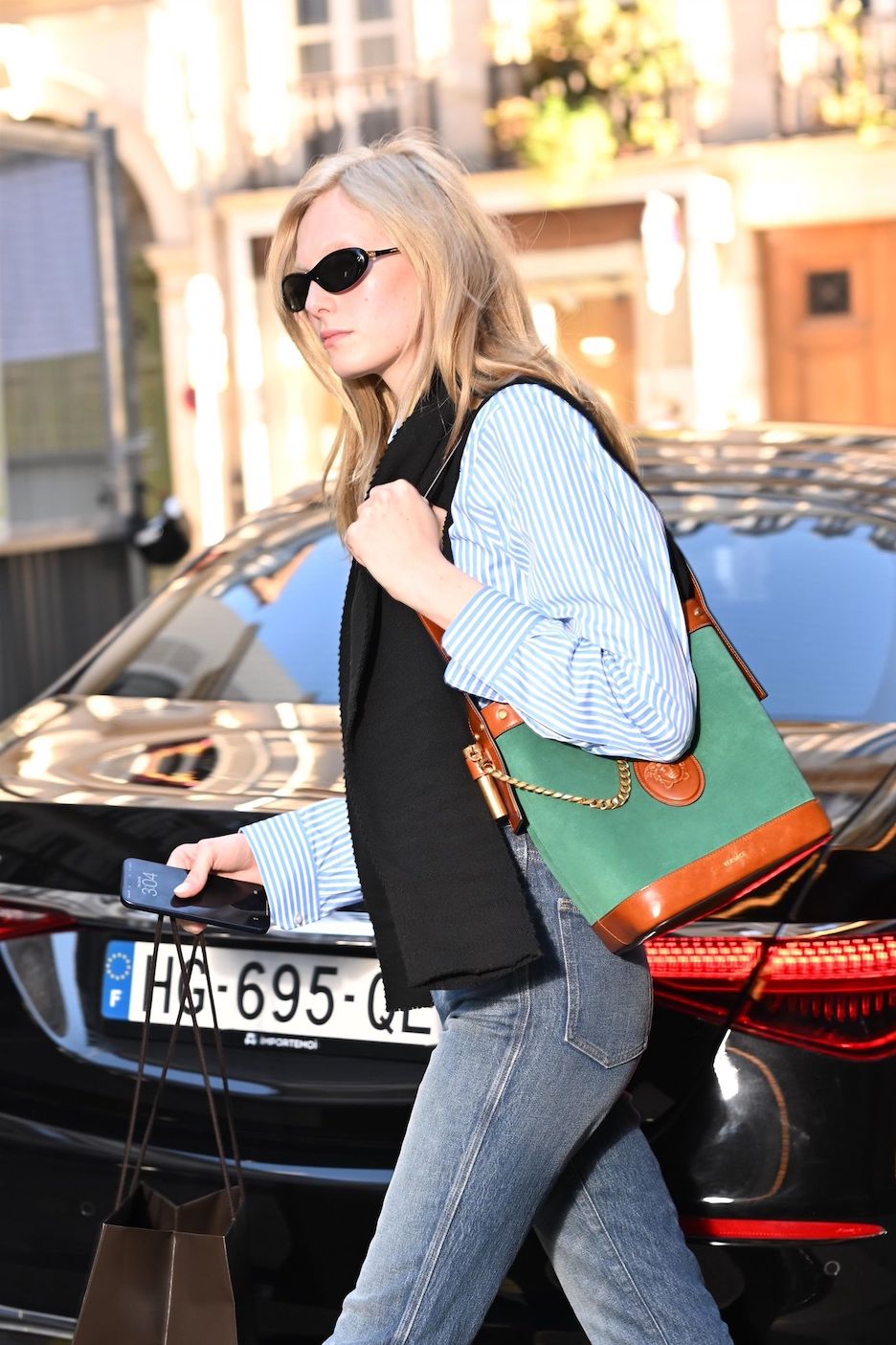
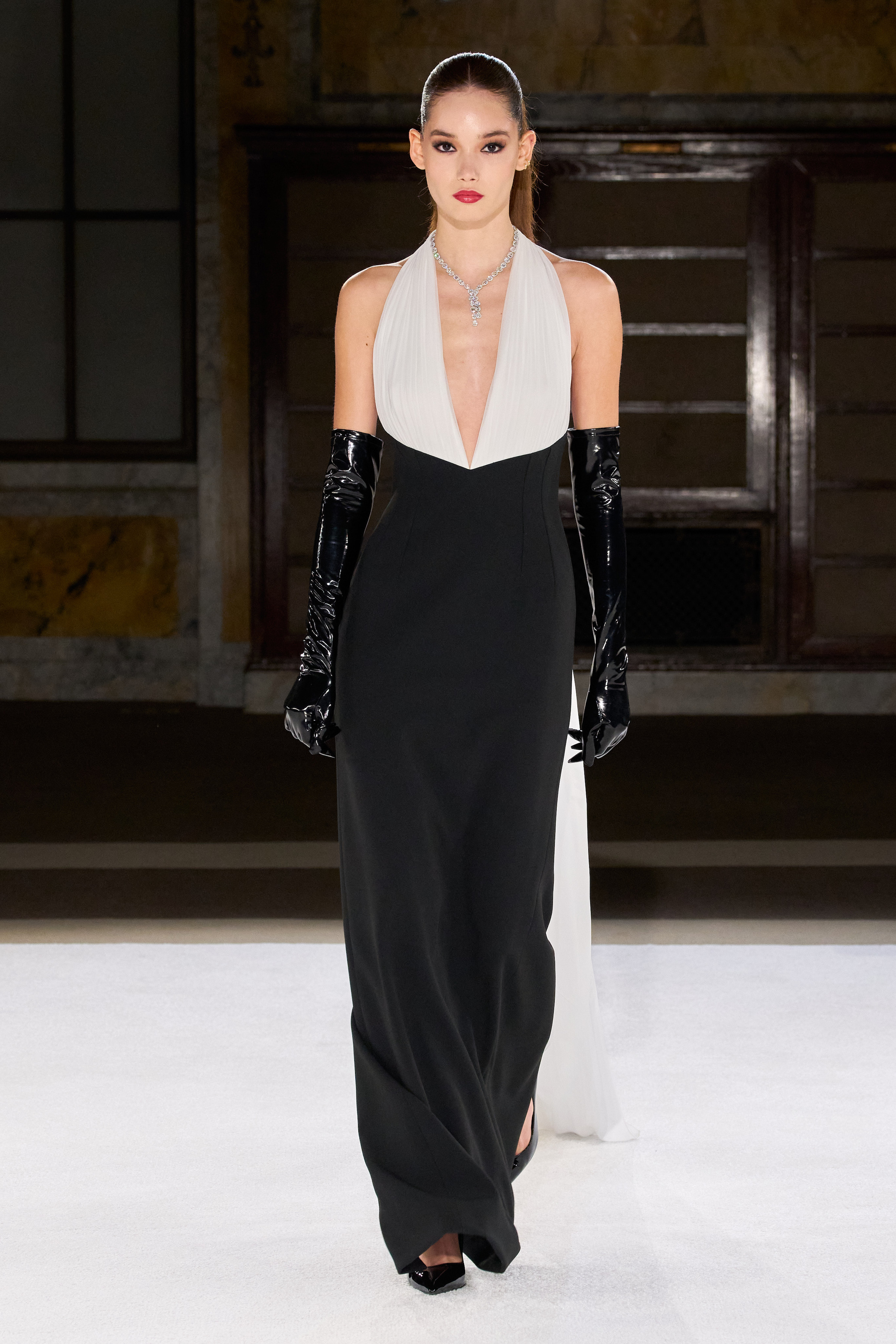
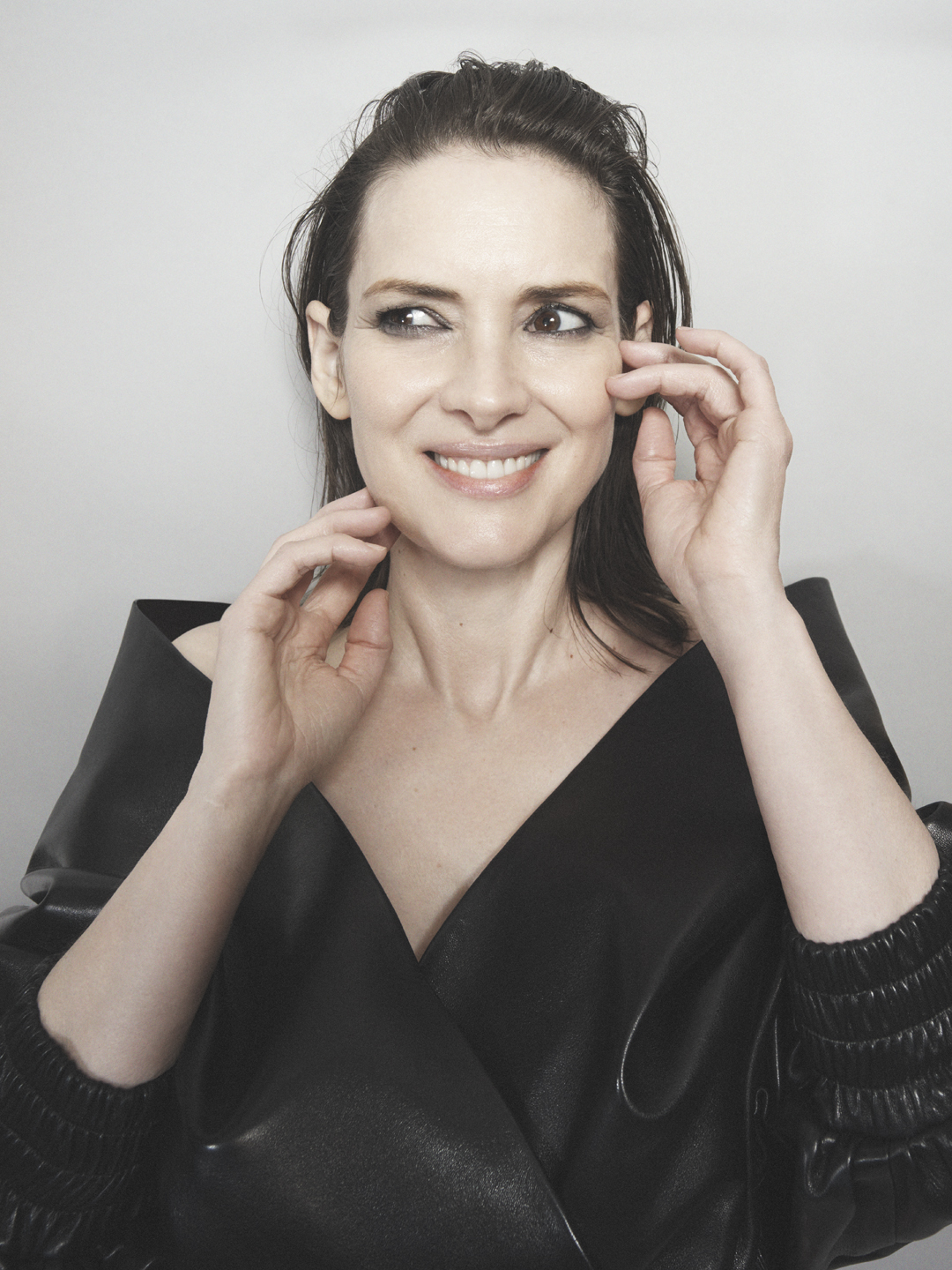
.jpg)
